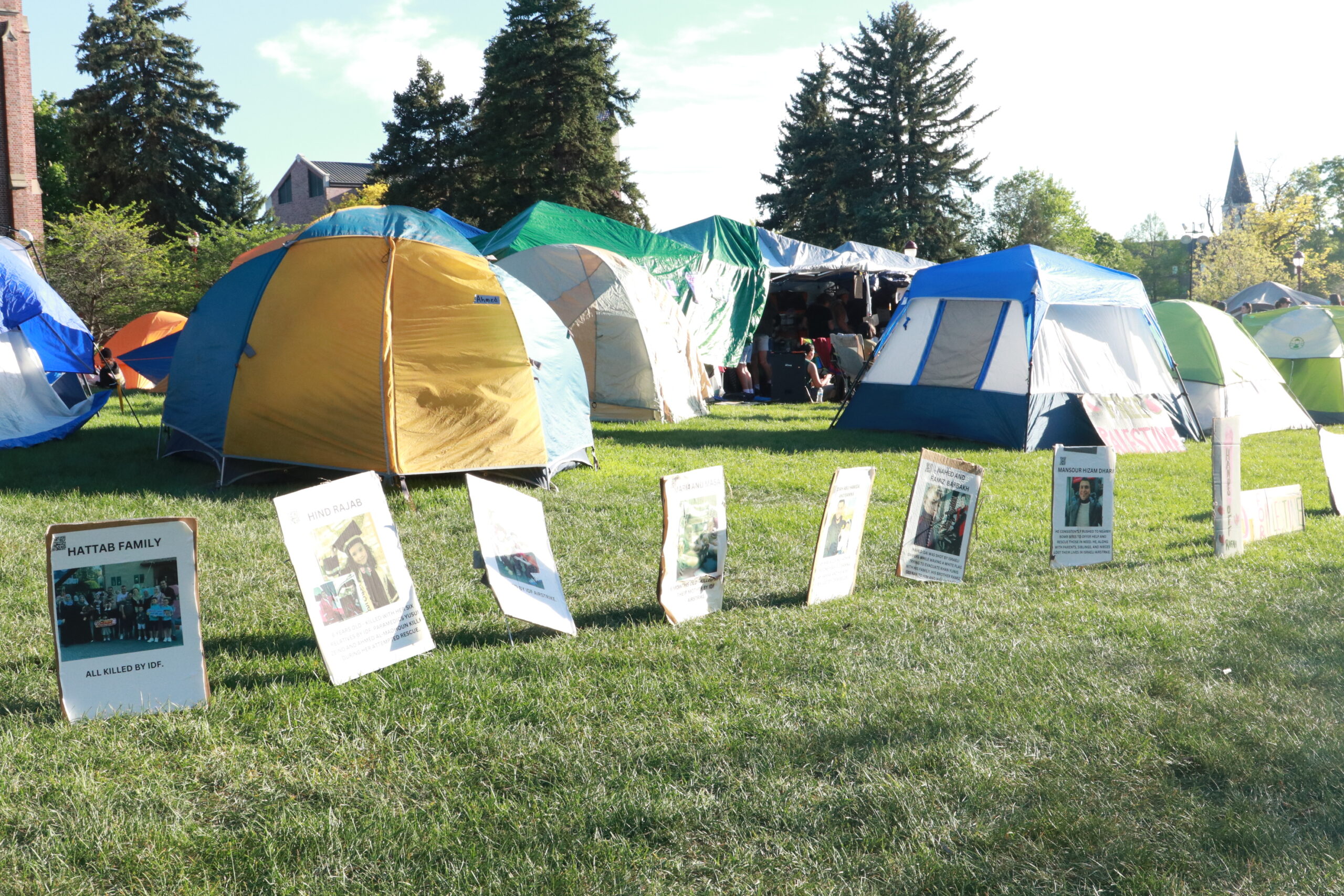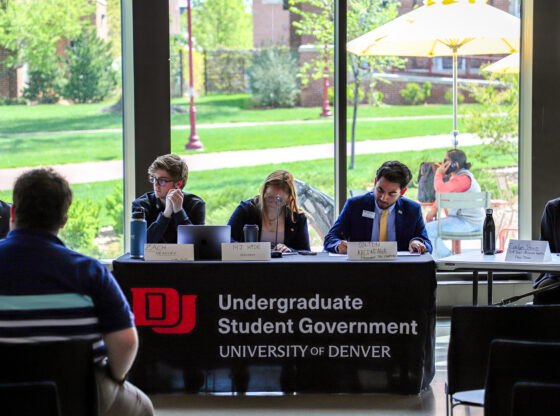 Photo by: Natalie Pipe
Photo by: Natalie Pipe
Though Congress recently authorized repeal of the military’s Don’t Ask, Don’t Tell rule, the policy is technically still in effect, and the need for gay service members to hide their sexuality continues, said BleuCopas, a soldier discharged under the rule.
“It still isn’t safe to be an out service member,” said Copas, in a speech at the Newman Center on Wednesday night last week.
The House passed a bill to repeal Don’t Ask, Don’t Tell (DADT) on Dec. 15, the Senate passed it on Dec.18 and Obama signed the bill four days later.
However, the repeal needs to be certified by the Joint Chiefs of Staff and the president before it officially becomes law, which could take several months.
“They (gay service members) still need to be careful,” said Copas.
His speech, hosted by the Josef Korbel School’s Center on Rights Development, was attended by about 35 students and community members.
Copas, from Johnson City, Tenn., had a conservative and religious upbringing, and many of his family members did not support his sexuality after he came out to them, he said.
He decided to join the military after Sept. 11, inspired to show his patriotism and serve his country.
Though he was not openly gay while in the military, Copas found a camaraderie that made him feel accepted for who he was.
“I found this new family,” he said. “I was finally enjoying life.”
Copas was an Arabic language decoder at Fort Bragg, N.C., when was accused of being gay by anonymous source in 2006.
Despite denying any allegations that he was gay, he never identified his accuser.
Copas was honorably discharged after four years of military service.
“I had a great family around me, and then all of a sudden it hit,” he said. “I felt very powerless.”
Copas was given three days to leave Fort Bragg after receiving his discharge papers.
He received half of the severance package given to honorable discharges because it came about under DADT.
“In that one moment, everything I had lived to become was stripped away,” he said.
Copas has shared his story with many media outlets, including MSNBC, ABC and on The Daily Show, in an effort to shed light on the way other gay service members are continually forced to conceal or hide their sexuality.
“I wasn’t just fighting for myself, I was fighting for all these folks who are forced to be silent,” he said.
When the DADT repeal legislation passed, it was one of the best days of his life, said Copas.
“I felt prouder, I felt more American, I felt more human,” he said.










